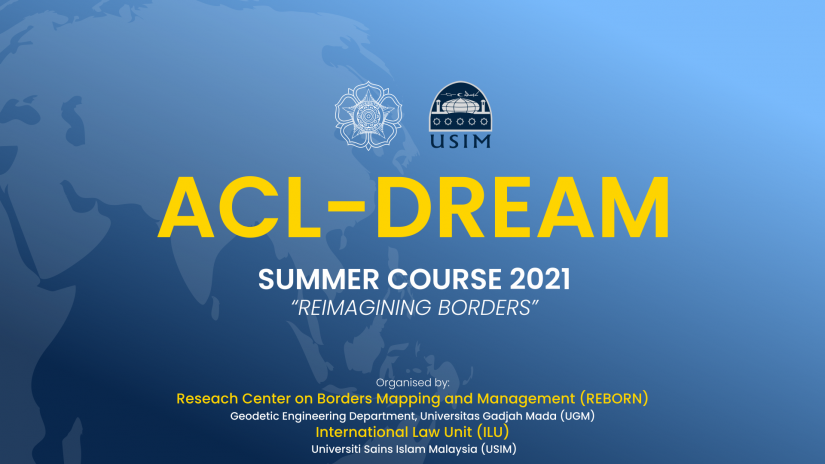
“Reimagining Borders”
When Berlin Walls fell down, Kenichi Ohmae coined a term “borderless world”. We live at a time
where borders no longer matter for mobility of people and goods know no borders. International
mobility is indeed a reality. With the formation of European Union, in Europe, for example, national
borders, to some extents, seem to fade away. International travel in some parts of Europe is like
traveling from one village to another in an Asian country setting. Kenichi Ohmae seems to be right
that we live in a borderless world.With the emergence of Covid-19 pandemic, things change a lot. Borders are a lot tighter and physical
mobility is something precious. Many countries declared explicitly how they prevent outsiders from
entering their borders and stop their citizens from going out of their country. We are facing a new
era or where borders matter more and they dictate our movement. Tourism industries are collapsing
flight companies are dying due to travel restriction
On the other hand, the adoption of information and communication technology have been
dramatically increased during the pandemic. Most people conduct activities at home and they rely
on technology to connect with people. Interestingly, within the same period of time, we may be in
touch with more people now as compared to the time before pandemic. Now, it is common to see
professors teaching in two or three different countries in one day. It is now a norm that someone can
attend and contribute effectively in more meetings without the need to worry about trafc jams.
Universities now collaborate with many different partners in many different countries without much
constraints about space and time. In short, pandemic also brings us new insight on how we see
borders. With the rapid adoption of technology in communication, we now live in a different kind
of borderless world.
Change is the only constant, they say. It is also true, with this recent Covid-19 pandemic that has
changed our perspective in viewing borders. We need to revisit our understanding on borders.
Hence, reimagining borders. We need an engaging conversation on borders from different
perspectives and disciplines to remember the history, understanding the present and predicting
the future of borders amid all the dynamics. This is the reason for a summer school we are now
organising: “Reimagining Borders”.
Course Content
This Full-Online Summer Course will be held on 20th August 2021 until 26th September 2021. There will be prominent and emerging scholars from different institutions in Asia, Australia, America, Africa, and Europe. Anybody can participate, University Students from all levels are encouraged to participate regardless of their disciplines. Total 21 Learning Package, Each package consist of :
- 120 Minutes Lectures and Discussions
- 60 Minutes Independents Studies
- 60 Minutes of Reflective Activities
Course contents will cover wide range of issues from natural to social sciences, from law to policy, from the sophistication of technology to practical case studies. All are wrapped in an important issue of “Reimagining Borders”.
The program is designed with 3 Indonesian Credit. Home institutions are free to recognise the credit and convert it into their own system based on detailed course content and load that we will provide, along with certificate for each participant.
To receive a certificate, a participant is obliged to:
- Attend at least 75% of the entire program;
- Complete two individual assignments (social media posts);
- Take part in group work and final presentation.
Organised by:
Research Center on Borders Mapping and Management (REBORN)
Geodetic Engineering Department, Universitas Gadjah Mada (UGM)
International Law Unit (ILU)
Universiti Sains Islam Malaysia (USIM)



